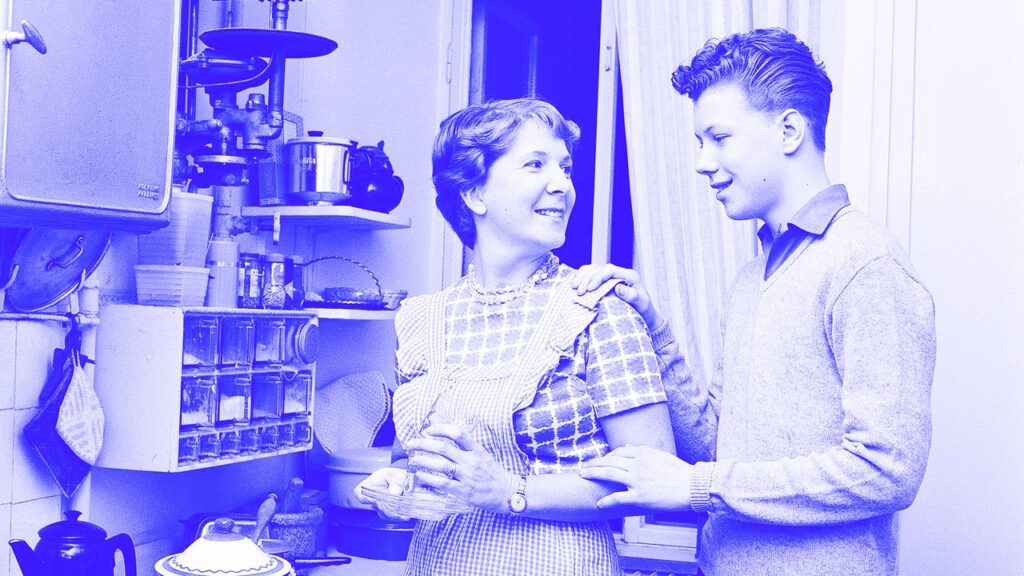The added bonus was, of course, that his mom is “kind of his best friend,” and his dog, Morty, had more people to give him attention. He also contributed to household chores, fixing his parents’ boat, taking out the trash, and bringing in deliveries when they came to the door. He ended up staying for almost 10 months, working from home and spending most of his time developing an app.
A competitive weightlifter, he describes himself as “not too political.” He says that some “trad sons” who live at home stand outside of “normal masculinity,” as he puts it. “Is it because you’re living at home because of the pressure, you can’t go out, and you can’t live your life?” he asks. But in his case, “it’s intelligent; it’s efficient,” he says. “Things happen in your life, and if you’re doing it because you have a good opportunity, kind of like how I was, and it truly is temporary.”
For other trad sons, the decision to move home was less of an afterthought and more of a choice. Take 33-year-old Luke Jonathan Parkhurst, who quit his job as a door-to-door salesman to move in with his mom, Patty, in Las Vegas. “What prompted it is, I just wanted to,” he tells Vanity Fair. “I packed up and moved home and sold my house.”
Patty was entirely supportive of his decision. “We don’t know, especially men, where their mental health is; they’re always taught not to cry, be strong,” she says. “All my kids really did launch early in life, including Luke. If any of them needed a reset, I want to be that person that can be there for them.”
A typical day for Parkhurst as a “hub-son,” the phrase his mom coined in an interview with The New York Post, starts with going to the gym while she walks his dog. He’ll then use her Costco card to get groceries, head home, and cook them lunch. After that, the afternoon agenda consists of lying by the pool, doing the chores, and then watching his nieces and nephews play soccer.

